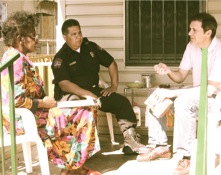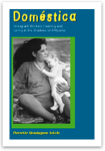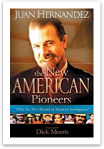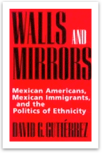







News and Resources is under construction . . .
Look here soon for books, articles, reviews and reports, as well as news about Partners in Hope.








News and Resources is still building . . .
We’re still posting reviews, documents, reports and links that deal with improving community. Look for more soon!

Immigration and Employment Resources
We’ve put these two areas together because of the overlap of issues. We may or may not personally agree with all of the viewpoints found in the resources listed here, but we think that hearing what is said will be helpful. We certainly invite more input into resources. E-mail aweeks@austin.rr.com with your suggestions. Comments about anything listed here can be carried over to the PIH Blog and shared with the wider community.
Articles, etc.
For those struggling to follow the current immigration debate in Congress, this Lutheran statement is a great starting place. The article outlines four main pillars of immigration reform that Lutherans stand for, and then analyzes current bills in light of these principles.
A simple overview of what the Bible has to say about immigrants by a professor at Wheaton College, an evangelical institution.
This front page article appeared in October, 2005 in the NY Times. The Equal Justice Center in Austin has been on the forefront of negotiations between the city, workers and Home Depot.
Links
WorkSource is a non-profit agency governed by the Texas Workforce Commission. It provides numerous job placement, training, and other support services for job seekers and employers. Several programs are offered for low-income residents of Travis County. WorkSource is especially helpful in transitioning people back into the workforce with services like childcare and free transportation.
ACC coordinates with Texas Worksource to provide a number of vocational training programs with scholarships available. They also provide low-cost or free literacy, ESL and GED classes throughout Austin.
This non-profit charter high school serves ages 16-21 with high school or GED programs, health care, counseling services, social services, job training, and job placement. Helping 1,000 students per year, they also oversee three local Americorps programs: Casa Verde Builders, which teaches construction skills; Environmental Corps, which trains workers to restore and preserve parks and public lands; and Computer Corps, which has students teaching computer skills to children. Americorps provides a living allowance, health care, and (on successful completion) money to use for college or trade school.
Assists persons with physical or psychological barriers to employment, by providing services or equipment needed for them to get a job, including job training or college, as part of an agreed-upon plan.
Trains legally-resident adults, whose incomes qualify them, with training for careers in health care, high tech, or accounting. For full-time students who reside in Central Texas, it provides tuition, fees, books, and child care. Also provides free English, GED, and college prep classes. Has ties with local employers.
This program serves persons 14-21 who are in or out of school, who have barriers to employment such as a physical or mental handicap, homelessness, runaway status, pregnancy or parenting, academic skills below grade level, having been through the juvenile justice system, and being or having been a foster child. In 2006, 600 young people are receiving such services as GED, job readiness training, job placement, job coaching, tuition costs, child care, and emergency housing, rent, or utilities. Goodwill also runs the City-County Summer Employment Program for youth; it sponsors case managers in 10 Austin high schools to provide tutoring and related services.
Skillpoint Alliance runs Community Technology and Training Centers (CTTC’s) at Reagan and Travis High Schools and several other locations, giving free computer and business skills classes (must attend an orientation first). Their no-charge 5-week Construction Gateway program (381-4216), one of the top 4 in the U.S., trains about 100 people per year in basic constructions skills: carpentry, plumbing, electrical, and HVAC. Must be age 18, no diploma required; 9 college credits on successful completion.
Exhaustive is not the word for this incredibly complete list of anything having to do with youth and work. Career counseling, job training, mentoring, educational resources . . . this is the list of links to beat all lists. If you are helping young people prepare for work, spend a day working through this list.
For ages 16-24, Job Corps offers free self-paced training in 27 different occupations, including medical assistant, CNA, auto body work or mechanics, culinary arts, welding, computer repair, and corrections. Training takes place at a residential center in San Marcos and lasts 8-12 months. On successful completion, graduates receive $1,200 to use toward college. The Job Corps is a certified Texas high school offering a diploma or GED; its college program busses students to ACC (San Marcos) or St. Phillips in San Antonio. Must be a legal U.S. resident.
PAPA is a non-profit assisting immigrants in central Texas with legal help in a variety of situations, including those seeking asylum, victims of abuse, immigrants facing deportation and victims of violence. PAPA also is an advocate for immigration reform.
Catholic Charities offers a number of low cost and free services to immigrants needing legal assistance. This includes help with residency, deportation hearings, domestic abuse and questions about immigration. The website has a series of very helpful question and answer pages.
An excellent resource for learning about issues surrounding immigration. Practical suggestions for advocacy, including news about current legislation.
A think tank devoted solely to immigrant issues. Excellent site containing lots of stats, reports, papers, etc. You can also subscribe to CIS’ e-mail list and receive daily or weekly compendiums of immigration news.
If the CIS is not enought for you, the NIF site offers exhaustive information about public policy around immigration, with up-to-the-minute updates and options for advocacy.
Brown University runs the on-line Choices Program for enrichment of secondary school curricula. This link takes you to their course on U.S. Immigration. Excellent bibliography, giving you material on both sides of the current argument, as well as a spectrum of website links.
The CTIWoRC, a project of the Equal Justice Center and Casa Marianella, works to defend the rights of day laborers and domestic workers. This group has been very involved with the controversy surrounding Home Depots in Austin. Go to their site to learn more, as well as other projects of the Equal Justice Center.
Read more about the city of Austin’s official day labor site on 51st street. Approximately 75 workers get work each day through First Workers, with the overflow shfiting to other site like the St. John Home Depot.

This study traces the lives of women who clean houses, care for babies and handle the intimate objects of households without really connecting with their mistresses, witnessing family life without really becoming part. This book raises uncomfortable questions about these disenfranchised women.

Juan Hernandez, on the faculty of UT-Dallas, is a citizen of both the U.S. and Mexico and served in the cabinet of Vicente Fox as representative to Mexicans living in the U.S. This book is a challenge to embrace the presence of Mexicans in America as a positive force. You’ll either love or hate this book, depending on your stand on immigration. Read this, and then read “Walls and Mirrors” as a more academic study of where attitudes about Immigration come from.

David Shipler, a journalist, interviewed dozens of working poor families in both urban and rural contexts. The book shows the complexity of their situations. Whether you find poverty to be caused by unjust structures or poverty a result of personal choices, you will find evidence for your beliefs here. What Shipler is able to do, however, is to show how these causes are intertwined, and he recommends that both sides need to embrace solutions from the other.

David Gutierrez has written a sweeping history of Mexican immigration to the U. S. , showing that history is, in many ways, repeating itself in the current immigration debate. Gutierrez also discusses the difference between Mexican Americans and recent Mexican immigrants and how they relate culturally and politically. A little dated (the book came out in 1995) but still excellent background reading.




